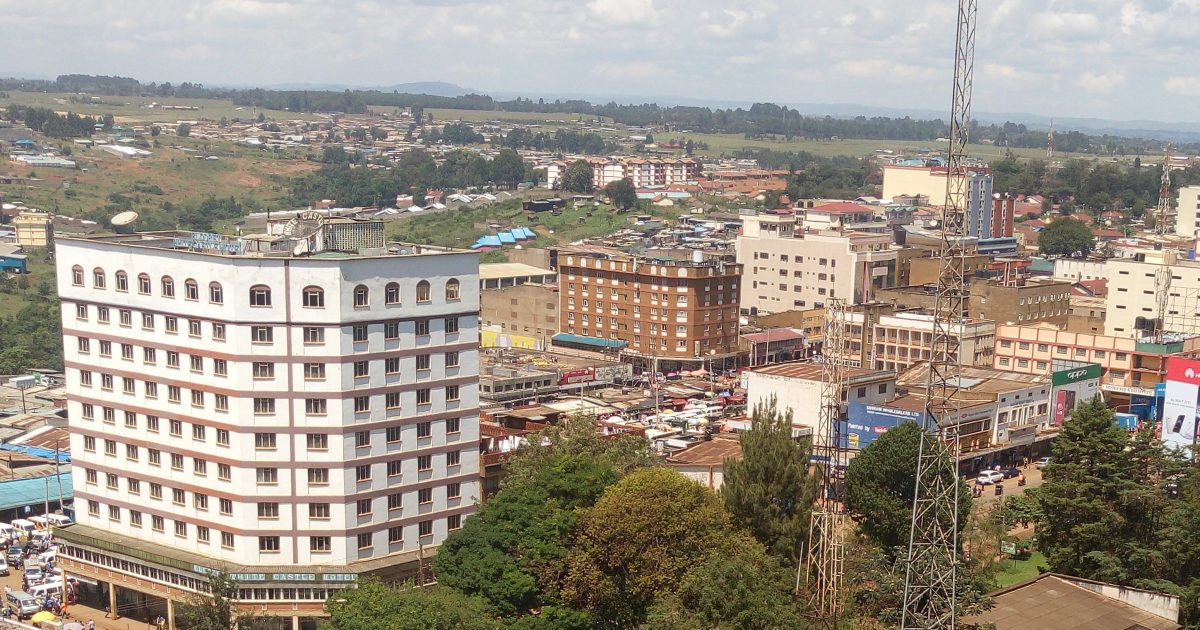Senators decry slow growth of Kenyan towns due to underfunding, lack of autonomy

The Senate County Public Investments and Special Funds Committee revealed that towns are failing to grow due to a lack of operational independence from county governments.
Senators have expressed concern over the stagnant growth of towns in Kenya, pointing to acute underfunding, the absence of financial autonomy, and the continued management of municipal assets by county executives as key barriers to development.
In a recent report tabled in the Senate, lawmakers outlined how many municipalities, including Eldoret and Kisii, are grappling with these challenges, leading to their stagnation.
More To Read
- MPs push for faster delivery of affordable housing, economic stimulus projects
- Two in three Africans will live in cities by 2050: How planners can put this to good use
- CS Wahome admits state may not build 1 million affordable housing units by 2027
- Urban planning experts say forced evictions undermine local and national development
- Urban Kenyans push for rent regulation as households spend heavily on housing
- Turkana unveils private sector engagement framework to foster urban development
The Senate County Public Investments and Special Funds Committee, led by Vihiga Senator Godfrey Osotsi, revealed that towns are failing to grow due to a lack of operational independence from county governments.
According to the committee, this situation violates several provisions of the Urban Areas and Cities Act, 2011. Specifically, the Act mandates that municipalities and cities be independently managed, with their own boards and managers overseeing day-to-day operations.
However, in practice, local towns remain under the direct control of county executives, limiting their ability to function autonomously and make key decisions.
"The committee observed that municipalities lacked operational independence from the county executive," said the Senate panel.
This lack of independence is seen as a significant obstacle to the growth and effective management of urban areas.
For example, in Eldoret, the municipality has not been able to fully implement the independence guaranteed by the Act.
A report by the committee showed that in the 2020-21 financial year, Eldoret faced a shortfall of Sh1.19 billion, or 76 per cent, of its budgeted funds. Similarly, Kisii municipality experienced an underfunding of Sh46.71 million, or 27 per cent of its budget.
Funding gap
This funding gap is primarily attributed to changes in the review of Urban Institution Grants and Urban Development Grants from the parent ministry.
Moreover, the report revealed that municipalities are struggling to maintain proper asset registers because county executives continue to manage these assets, contrary to Section 104(1)(h) of the Public Finance Management Act, 2012.
The panel noted that this situation prevents municipalities from accurately reflecting their financial status in official statements.
The committee has called on governors to ensure that municipalities have full custody of their assets by the end of the Financial Year 2024-2025, stressing the importance of local towns having complete control over their resources to improve their operations and growth.
The situation is similarly dire in Mwatate Municipality in Taita Taveta, where there was an underfunding of Sh9.61 million, or 10 per cent of the budget, and an under-expenditure of Sh19.17 million, or 20 per cent of the budget.
In Kakamega, the municipality suffered an underfunding of Sh198.52 million, or 72 percent, with operations carried out only at an office level, while project implementation was handled by the county government through its Department of Lands, Housing, Urban Areas Development, and Physical Planning.
"The committee observed that only office operations were being carried out by the municipality board, while project implementation was being carried out by the County Executive," the report stated.
This reflects a failure to comply with Section 21(1)(a) of the Urban Areas and Cities Act, which grants municipality boards executive authority delegated by county executives.
The committee recommends that the governor of Kakamega ensure Kakamega municipality gains full operational independence.
In conclusion, the Senate report highlights the urgent need for policy changes and greater financial autonomy for municipalities if Kenya's urban centres are to flourish.
Without these reforms, the growth of towns like Eldoret, Kisii, and Kakamega will continue to be stunted, with local residents bearing the brunt of inadequate infrastructure, services, and development opportunities.
Top Stories Today

















































